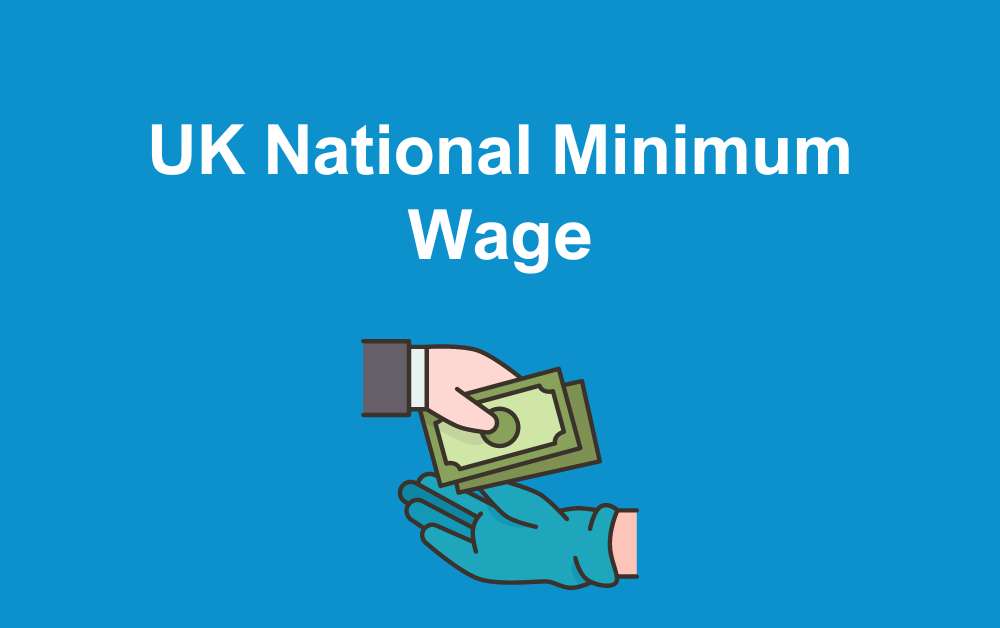As of April 2024, the UK government has implemented a new increase in the National Living Wage, reflecting ongoing efforts to address inflation and support the cost of living for low-paid workers. In this blog post, we’ll explore what the National Living Wage is, its current rate, and how to navigate changes.
What is the National Minimum Wage?
The National Minimum Wage is the minimum hourly pay that workers in the UK are legally entitled to receive. It applies to almost all employees, with different rates based on the worker’s age and whether they are an apprentice. The purpose of the NMW is to protect low-income workers from exploitation and provide a basic standard of living, ensuring that all workers are compensated fairly for their work.
The minimum wage is separate from the National Living Wage, which applies to workers aged 21 and over and is set at a higher rate to reflect the increased living costs for adults. It is also distinct from the Real Living Wage, a voluntary rate that is calculated by the Living Wage Foundation to reflect actual living costs, which is higher than the statutory minimum rates.
Current National Minimum Wage Rates (as of April 2024)
Here are the current rates for 2024:
-
NMW Rate National Living Wage (21 and over) £ 11.44 18-20 Year Old Rate £ 8.60 16-17 Year Old Rate £ 6.40 Apprentice Rate £ 6.40 Accommodation Offset £ 9.99
These rates are legally binding for all employers and aim to reflect a fair wage for workers of different ages and skill levels. It’s essential for employers to stay compliant and make any necessary adjustments to their payroll in line with these changes.
The National Living Wage
As of April 2024, the National Living Wage has risen to £11.44 per hour, up from £10.42 in 2023. This represents a substantial increase aimed at helping workers keep up with the rising costs of living, given the ongoing economic pressures of inflation. Employees aged 21 and over are now entitled to the national living wage.
The Real Living Wage
The Real Living Wage is a voluntary wage rate calculated by the Living Wage Foundation, based on the actual cost of living, rather than a government-mandated minimum. Unlike the National Living Wage, which is the legal minimum for workers aged 21 and over, the Real Living Wage is independently set and updated annually to reflect what people need to earn to afford everyday essentials, such as housing, food, and transportation. As of 2024, the Real Living Wage is set at £12 and £13.15 in London. Many employers choose to pay this rate to support their workers and promote a fairer, more ethical working environment.
Registering as a Real Living Wage employer has numerous benefits: it enhances employee morale, reduces turnover, and boosts productivity, as workers feel valued and fairly compensated. At The HR Booth, we are proud to be a Real Living Wage employer because we believe in the importance of fair pay and supporting the well-being of our employees. This commitment not only helps us attract and retain talented individuals but also aligns with our values of fairness, respect, and fostering a positive work environment.
You can find out more and register on the real living wage UK and real living wage Scotland website.
What happens if National minimum wage and national living wage are not paid correctly?
If an employer is found to not pay their employees the correct NMW or NLW, they can be fined by HMRC. In 2023, the Government named a wide range of large organisations including WH Smith and Argos failed to pay their staff the correct pay. It was found that over 200 businesses were fined a total of almost £7 million. These businesses were told to reimburse 63,000 workers.
Tips for Employers to Navigate Minimum Wage Changes
- Stay Informed: Regularly check government updates to remain aware of changes to minimum wage legislation.
- Communicate with Employees: Be transparent about pay changes. Inform employees of how the new rates impact them, and address any questions they might have.
The National Minimum Wage is a crucial part of ensuring that workers across the UK receive fair compensation for their labour. The 2024 increase reflects the government’s ongoing efforts to support lower-paid workers amidst rising costs. Employers must stay proactive in adapting to these changes, ensuring compliance while making strategic decisions to manage their wage bills effectively.
If you would like more information on the national minimum wage, or any other HR or employment law related matter, please contact us.







